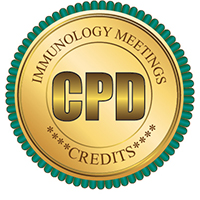
Robert M Stroud
University of California San Francisco, USA
Title: Engineering a 30-year-old intracellular channel: Twitching a voltage sensor with a taste of pharmacology
Biography
Biography: Robert M Stroud
Abstract
Proteins in plasma membranes are subject to large trans-membrane potential of ~200,000 V/cm. This affects all such proteins. Some proteins harness voltage sensors to detect and respond to changes in potential. Such proteins are found also in internal organelles where they are oft en more intricately regulated. Hence by protein engineering it is possible to tune the responses to conducted ions and to voltage. I describe a channel in the TPC1 class 1, 2, 3. Because of its regulation by calcium ions, it can be restored to its closed resting state. A comparison between this and all other voltage sensors in full-length channels, which are generally activated at zero Volts, shows for the first time in a voltage sensitive channel how a voltage sensor responds, to effectively move charges across the membrane? A conformational transition indicates a mechanism that may be general. It accounts for the measured gating charge that defines how many charges must transition from one side to the other. Conformation changes lead to channel opening.

